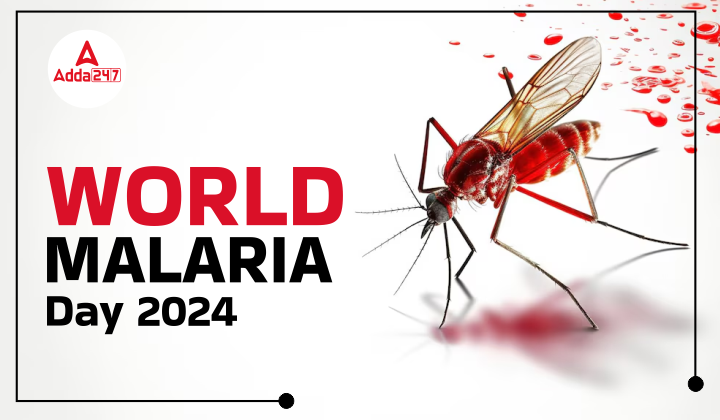Table of Contents
World Malaria Day 2024
World Malaria Day is an annual global observance celebrated on April 25th to raise awareness and renew efforts towards eliminating malaria worldwide. Malaria, a disease transmitted through mosquito bites, manifests primarily with symptoms such as shaking chills and high fever. It is prevalent in tropical and subtropical regions, yet preventable through adequate precautions. World Malaria Day serves as an annual reminder to promote awareness about preventive measures and strategies to avoid contracting this illness.
The themes for World Malaria Day 2024 emphasize the importance of investments in malaria elimination as a means of saving lives, fostering economic growth, and preparing for future health threats. These themes resonate with donors and endemic countries, aiming to make a compelling case for replenishing the Global Fund.
No single tool currently available can solve the malaria problem alone. The World Health Organization (WHO) is calling for investments and innovations that bring new vector control approaches, diagnostic tools, antimalarial medicines, and other solutions to accelerate progress against malaria. The article provides detailed information on World Malaria Day 2024, including its history, theme, and significance.
What is Malaria?
Malaria, a potentially life-threatening illness, is triggered by the Plasmodium parasite. It spreads to humans via bites from female Anopheles mosquitoes carrying the infection. Predominantly found in tropical and subtropical areas like sub-Saharan Africa, Southeast Asia, and South America, malaria is primarily caused by Plasmodium falciparum, which leads to more fatalities, while Plasmodium vivax holds the distinction of being the most prevalent malaria species.
Symptoms of Malaria
- Once inside the human body, the parasites multiply in the liver and then infect red blood cells, causing symptoms such as fever, chills, headache, muscle aches, and fatigue.
- In severe cases, malaria can lead to organ failure, coma, and death.
Types of Malaria
There are four primary types of malaria that affect humans: Plasmodium falciparum, Plasmodium vivax, Plasmodium ovale, and Plasmodium malariae. Among them, P. falciparum poses the greatest threat, whereas the remaining types generally result in less severe sickness.
Prevention & Treatment of Malaria
Prevention measures for malaria include:
- Using mosquito nets
- Applying insect repellents
- Taking antimalarial medication for travelers heading to high-risk areas
Early diagnosis and treatment are crucial:
- Effective antimalarial drugs help prevent complications and death.
World Malaria Day 2024: Theme
The theme for World Malaria Day 2024 revolves around “Advancing the battle against malaria for a fairer global community.” Leading roles in this endeavor are taken up by nations that have made substantial contributions. Alongside those countries that have achieved zero malaria cases, others are also nearing this milestone, serving as sources of motivation for all nations to intensify their efforts in combatting the disease.
Important Days in April 2024: List of National & International Days
World Malaria Day 2024: History
World Malaria Day was introduced in May 2007 during the 60th session of the World Health Assembly, the decision-making body of the WHO. Its establishment aimed to enhance awareness and knowledge about malaria while promoting the implementation of national malaria-control strategies throughout the year, including community-based initiatives for prevention and treatment in areas where malaria is prevalent. Before the inception of World Malaria Day, Africa Malaria Day was observed on April 25, starting in 2001 after the signing of the Abuja Declaration by 44 malaria-endemic countries at the African Summit on Malaria.
World Malaria Day 2024: Significance
The transmission of parasites by an infected mosquito’s bite leads to the deadly disease known as malaria. Annually, it affects over 290 million individuals and results in around 400,000 deaths. Available remedies for the disease include vaccines, medications, and mosquito nets. Pregnant women carrying the infection can pass on congenital malaria to their offspring. Transmission of the disease can also occur through the sharing of needles or syringes between infected and healthy individuals. Public awareness efforts involve street demonstrations featuring plays and roadshows. Social media engagement through active participation in groups using popular hashtags and imagery is another avenue for spreading awareness. Schools organize various activities such as quizzes, essay and speech contests, drawing competitions, poster making, and debates to educate students about malaria. Collaborative events and seminars involving government bodies, self-help groups, communities, and individuals contribute to raising awareness. Establishing partnerships with private healthcare facilities is crucial in efforts to reduce malaria incidence.





 GA Capsule for SBI Clerk Mains 2025, Dow...
GA Capsule for SBI Clerk Mains 2025, Dow...
 The Hindu Review October 2022: Download ...
The Hindu Review October 2022: Download ...
 Seating Arrangement Questions for IBPS R...
Seating Arrangement Questions for IBPS R...


